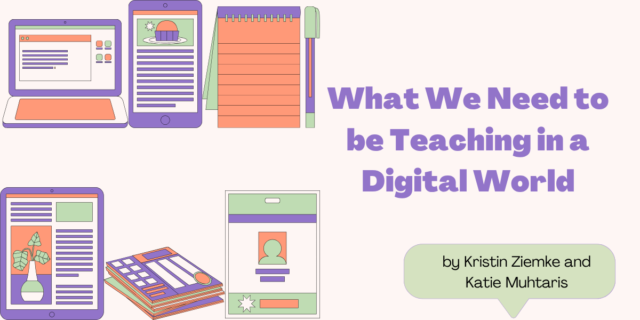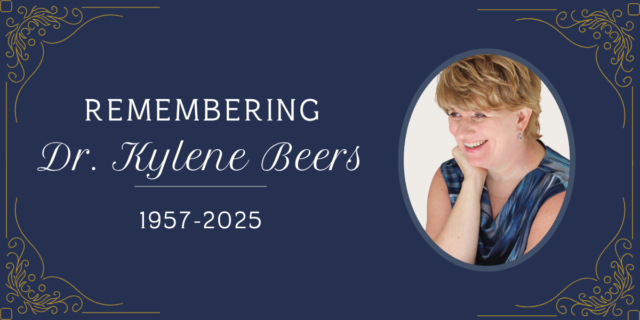
This month, our posts aim to position ourselves as educators who understand the evolving definition of literacy, and use this knowledge to teach our students to be both critical consumers and creative contributors through text and media.
♦ ♦ ♦ ♦
by Jaclyn Karabinas
Connect
With our evolving definition of literacy at the forefront of our minds we begin to see a bit more clearly how our literacy skills play out in our personal and professional lives. Are you a lover of memes? Infographics? Video? Blogs? These are just some examples of what we consume—and can create—each day. Our students also are consuming and producing digital information, which means including this topic in their literacy education is a must.
![]() Consider
Consider
Our Guiding Question is: How do we apply our evolving definition of literacy to designing learning experiences for students to be both critical consumers and responsible, creative contributors of information?
![]() Educate
Educate
In this video blog, Argument in the Real World co-authors Kristen Hawley Turner and Troy Hicks remind us to step back from our assumptions about what we think kids know how to do with technology so we can find our teaching points.
![]() Reflect
Reflect
Take a moment to write or think about what holds you back from creating space for kids to learn, create, and share with media. Is it a specific fear? Technology access? Lack of experience? Think carefully about this so you can be as honest with yourself—and hopefully also in conversations with colleagues—allowing you to break down that barrier and find your next step.
Practice
Because many students either spend a large amount of time on social media or are at least influenced by the information they encounter from social media via peers or family members, it is one of the best places to begin when planning lessons to authentically help students consume information through a critical lens.
Read this piece “Seriously? Seriously.The Importance of Teaching Reading and Writing in Social Media” by Troy Hicks and Kristen Hawley Turner for guidance on how to get started with your practice of understanding how to teach critical consumption of social media.
![]() Extend
Extend
In this next piece, we combine the thinking of Kylene Beers and Robert Probst with the that of Kristen and Troy to help you extend your knowledge about why explicitly teaching application of literacy skills in the context of social media is so crucial. Make time to read “How Teachers Can Disrupt Fake News” twice—first through the lens of your own experience with social media and a second with your own students or children in mind.
![]() Refine
Refine
Once you work with students to understand how to consume information with caution, through questions, and by confirming evidence, you will need to model for them how to transfer this to their own creation of shareable information. How might they cite sources in a blog post? Where will they find accurate images to convey meaning in an infographic or photo montage? What is their responsibility when creating content to present an argument?
While examples thus far have highlighted older students, this piece “Learning is Social: Finding An Audience Online” by Amplify coauthor Kristin Ziemke, will shine light on some places to begin with younger children. Ziemke also provides some simple first steps for getting started with any age, especially if embracing this concept is new for you as an educator.
![]() Act
Act
Find some colleagues to collaborate with as you decide on a series of lessons that allow students to apply what they are learning by consuming, creating, and sharing with a broader audience. Don’t forget to include time for student reflection! This will help their ongoing synthesis of how literacy skills play out in their everyday lives.
>>>For Further Reading:
PLC Series Feburary Post #1: Literacy, Redefined
♦ ♦ ♦ ♦
Looking for more PD?
Online: We have an upcoming webinar series with Dan Feigelson and Carl Anderson, and another with Colleen Cruz! You can also join us in-progress with Lindsey Moses or Jennifer Serravallo—Find out more here!
Off-Site: Join authors such as Kristin Ziemke, Kristine Mraz, Kathy Collins and Matt Glover, and more in a One-Day Workshop! Get the full schedule by clicking here.
On-Site: Heinemann’s Speakers & Consulting Authors are trusted experts in how to create successful classroom and school environments based on respect, collaboration, empathy, and positivity. Find out more by clicking here!


